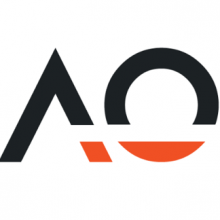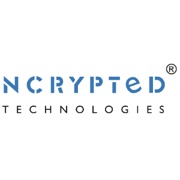
There are 4 Companies in Finland
that provide Laravel Development Services!
Finland’s IT sector is one of the most advanced in Europe and the second-largest IT hub in Northern Europe. The country has been through a strong digitalization process in the early 2000s, and skilled specialists are more and more attracted to discover the digital and tech possibilities the country has to offer.
Discover Top IT Companies in Finland specialized in Laravel and other related services. Find the best IT service providers for your projects.
Laravel is a popular open-source PHP web application framework used for building web applications and websites. It's known for its elegant and expressive syntax, as well as its rich set of tools and libraries that simplify common web development tasks. Laravel was created by Taylor Otwell and released in 2011, and it has since gained widespread adoption in the PHP development community
Handpicked companies • No obligation to hire • 100% risk-free
Explore Top Laravel Development Companies in Finland
Right from business planning and analysis to design, development, implementation, deployment and beyond
10 years of Growth Marketing, 90 years of storytelling A lean marketing company joined a big Finnish media company and the result was something comp...
Filter Laravel Development Companies in Finland by Cities
Find the right tech company near you or from a specific city. Some of the best companies might be located in smaller cities.
Find more Laravel Development companies around the world
TechBehemoths is the world's most advanced and user-friendly platform to match IT Companies with real clients without hustle.
The Finnish IT Industry: Country Profile & Companies
Finland’s IT sector is one of the most advanced in Europe and the second-largest IT hub in Northern Europe. The country has been through a strong digitalization process in the early 2000s, and skilled specialists are more and more attracted to discover the digital and tech possibilities the country has to offer.
Among other things, Finland ranked 1st globally in the happiness index 4 years in a row, which gives another reason for skilled IT specialists to enter the local market, and the native Finnish professionals to remain and continue to develop the country's IT and the entire business ecosystem.
Finland’s contribution to the world's digitalization is huge - they brought the SMS, 5G, and Linux OS. This highlights, even more, the capabilities of Finnish tech workers in the field.
Why Work With Finnish IT Companies
Finnish IT companies made their way through the European IT market in 2008-2010, but at that time the market only started to grow and didn’t provide enough possibilities to Finnish companies to gain a world name. However, in 2015, IT companies from Finland managed to break the market with improved UI/UX solutions, high performance in software and web development, and also numerous startup incubators that relaunched the country’s IT sector and made it one of the most famous in the world.
From Finnish IT companies and digital agencies, you can expect everything from excellent and outstanding services. The 3400+ IT companies provide high-quality services for the local market via public-private partnerships, and for the international market via BPO, and direct services due to the open European Market.
Most Finnish IT companies are SME’s which are supported and facilitated by the government and local policies. In Finland, companies usually join IT parks and tech communities that help businesses find and benefit from local digital services.
What You Should Be Aware of When Working With Finnish IT Companies
According to Glassdoor, the average annual salary in the Finnish IT sector is 92,290 euros, which is also makes it higher than the average salary and hourly rate, which is 44 euros. In these regards, you may want to pay attention to prices before working with a digital agency from Finland.
Everything else, from project management and dev skills, should not be a reason for concern since Finnish skilled workers are enough, and everywhere in the local companies.
Are Finnish Companies Reliable?
The most well-known thing about Finnish IT companies is their high-quality services and products. This is why reliability is not a question for local digital agencies and companies from Finland. Also, due to market stability and reliability, foreign investors and IT companies are choosing Finland as their next location for new offices.
How Does the Finnish IT Sector Relate to the Neighboring Countries?
Across Europe, there are traditional IT sectors and more innovative ones. Finland focuses more on innovation and tries to bring digitalization to new sectors of the economy. There are eight pillars of the Finnish digital economy, and all of them connect each part of the economy and society to the web:
- Digital Trust
- AI
- Intelligent Connectivity
- New Space Economy
- Smart Mobility
- Data Centers
- Retail Tech and Ecommerce
- Financial Technology.
Some of these pillars are present in the traditional IT sectors such as FinTech, E-commerce, and Data Centers. The neighboring Sweden, for example, focuses more on e-commerce and FinTech, but lacks other digital directions that Finland has.
The latest Finnish sector that goes through digital transformation is the medical sector. Finnish digital agencies and IT companies focus now on providing a comfortable place for doctors and patients using digital technologies. This comfort touches aspects like interior design, acoustics, access to information, entertainment, and extends up to neural networks and involves AI in the surgery processes.
What is Laravel and what are its benefits for your projects?
Laravel is a popular open-source PHP web application framework used for building web applications and websites. It's known for its elegant and expressive syntax, as well as its rich set of tools and libraries that simplify common web development tasks. Laravel was created by Taylor Otwell and released in 2011, and it has since gained widespread adoption in the PHP development community. Here are the key aspects and features of Laravel:
-
Elegant Syntax
-
MVC Architecture
-
Artisan CLI
-
Database Abstraction
-
Blade Templating Engine
-
Middleware
-
Authentication and Authorization
-
Routing
-
Caching
-
Testing
-
Security
-
Community and Ecosystem.
-
Scalability
When choosing a PHP framework for a project, there are several alternatives to Laravel, each with its strengths and use cases. The choice depends on project requirements, familiarity with the framework, and specific preferences. Here are some notable PHP frameworks that often compete with Laravel:
-
Symfony: Symfony is a high-performance PHP framework known for its flexibility and modularity. It is often used for large, enterprise-level applications. Laravel actually uses several Symfony components under the hood. Symfony provides robust tools for building web applications, APIs, and microservices.
-
Zend Framework (Laminas): Zend Framework, now known as Laminas, is a mature framework that focuses on building scalable and enterprise-grade applications. It provides a collection of reusable components for various tasks, allowing developers to choose and integrate only what they need.
-
CodeIgniter: CodeIgniter is a lightweight and straightforward framework that emphasizes simplicity and speed of development. It's often chosen for smaller projects and rapid application development (RAD). While it has a smaller feature set compared to Laravel, it's known for its minimal learning curve.
-
CakePHP: CakePHP is a full-stack framework that focuses on convention over configuration (CoC). It comes with features like scaffolding, a built-in ORM, and a friendly community. It's known for its simplicity and convention-driven development.
Companies specialized in providing services using Laravel can significantly benefit relevant projects. Their expertise in Laravel development allows them to efficiently create customized web applications that meet specific project requirements. With a deep understanding of Laravel's capabilities, these companies can ensure the project benefits from Laravel's robust features, clean code structure, and security mechanisms.
They expedite development using Laravel's built-in tools and extensive package ecosystem, making them well-suited for both small-scale and enterprise-level applications. Security is a top priority, with specialists implementing best practices to protect against common web vulnerabilities, enhancing the project's safety, especially when dealing with sensitive data.
After the project launch, these specialized companies offer ongoing maintenance and support, addressing issues, applying updates, and ensuring the application's long-term reliability. They also excel in integration with third-party services and technologies, expanding the application's functionality and enhancing the user experience.
In addition, some companies may offer UX and design services, further improving the project's visual appeal and usability. Through rigorous testing and quality assurance, they identify and resolve potential issues before deployment, ensuring the application performs reliably across various devices and browsers.



